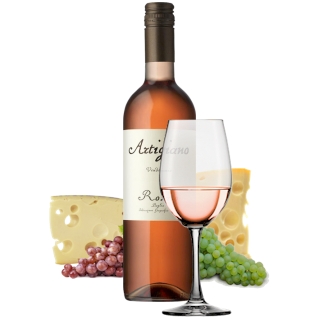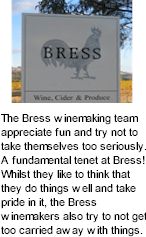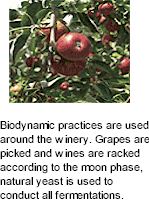


Firstly, to farm in a sustainable manner that is environmentally sound. At Bress this is achieved by using Biodynamic farming practices: Biodynamic farming was developed in the mid 1920s by Rudolph Steiner and advocates the non use of synthetic herbicides, pesticides and fertilizers. Rather than using these products, composting and mulching are used on the farm to build up soil organic matter, which improves soil moisture retention. Natural biodynamic preparations500 through to 508 are used to improve soil vitality and plant health.

Bress subscribe to the recognition that one grape growing region cannot be all things for the wine styles that are made. The belief is that certain grape growing regions are better suited to particular grape varieties than others. The French have understood this for several centuries and some Australian wine producers and growers are now embracing this. Bress produce wines from several regions throughout Victoria and from the Margaret River region in Western Australia.
To eat well, one must understand the passage of the seasons. Throughout the world, the four seasons have traditionally had a sizeable impact on how our food is grown and cultivated. However, with the advent of refrigeration, broad acre farming, the use of chemicals and growth hormones to promote crop size and ripening and international shipping, the reliance on seasonality is being eroded. Bress hold the belief that this modernization of food is not a healthy thing. Bress promote and embrace the consumption of products that are grown and harvested fresh according to seasonality.
Biodynamic practices are used around the winery. Grapes are picked according to the moon phase. Natural yeast is used to conduct all fermentations. To avoid the use of artificial yeast supplements, all fermentations are conducted with 100 percent juice solids. All wines are racked on the moon phase when the moon is in opposition. This greatly reduces reliance on filtration, so much so that Bress red wines are no longer filtered. Cooperage at Bress include Bousset for Semillon, Marsanny, Dargaud et Jaegle and Siruge to the Chardonnay, Francois Freres, Dargaud et Jaegle and Siruge for Pinot Noir, Nadalie and Francois Freres for the Shiraz. All wines are bottled at the winery using a portable bottling line.

Bress use the same biodynamic principles applied to viticulture in the growing and making of ciders. Bress ciders are made from a blend of cider apples, Perry pears, which are the pear equivalent of the cider apple and pink lady apples. After the apples and pears have been milled and basket pressed, they are fermented at low temperatures (12-16 degrees) for up to four weeks until they are dry. Post fermentation, the different varieties are appraised and blended. This blend is then tiraged. Tiraging is the addition of sugar and yeast to the base cider, which is then bottled. Second fermentation occurs in the bottle. It is this fermentation that gives the cider it fizz. After at least six months on lees the cider is then riddled using the traditional methode champenoise technique and then disgorged. Two ciders are produced, Crut which is a dry style and Bon Bon, which is a sweeter style.
Comestible are goodies produced at Bress which are not alcoholic. With the cider and winemaking season running between February and May, there is so much of the year left to busy with making other things to eat and drink. Annually, the winemakers put together a selection of Bress goodies that are all gift wrapped and boxed and can be sent throughout Australia.
The Bress winemaking team appreciate fun and try not to take themselves too seriously. A fundamental tenet at Bress! Whilst they like to think that they do things well and take pride in it, the Bress winemakers also try to not get too carried away with things. They are very open with the winery estate's visitors and are always happy to assist those who take an interest.
